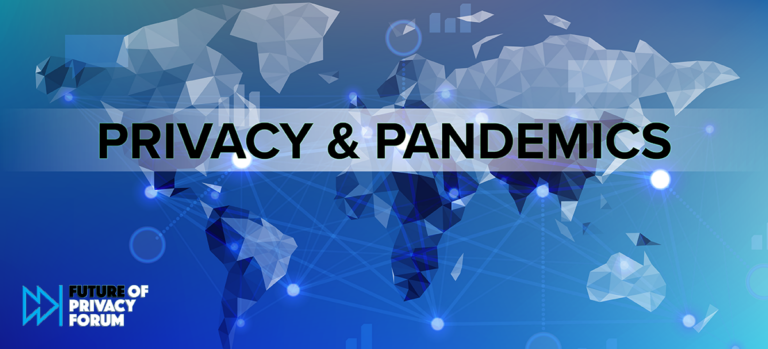
(Day 2 Participant Bios)
Keynote:

Lauren Gardner
Johns Hopkins University
Lauren Gardner, associate professor in the Department of Civil and Systems Engineering at Johns Hopkins Whiting School of Engineering, is the creator of the interactive web-based dashboard being used by public health authorities, researchers, and the general public around the globe to track the outbreak of the novel coronavirus that has spread worldwide since early January. Gardner is co-director of the Center for Systems Science and Engineering and affiliated faculty in the Johns Hopkins Bloomberg School of Public Health. Her research expertise is in integrated transport and epidemiological modeling. Gardner has previously led related interdisciplinary research projects which utilize network optimization and mathematical modeling to progress the state of the art in global epidemiological risk assessment. Beyond mobility, her work focuses more holistically on virus diffusion as a function of climate, land use, mobility, and other contributing risk factors. Outcomes from her research projects have led to publications in leading interdisciplinary and infectious disease journals, presentations at international academic conferences, as well an invited seminars at top-tier Universities and Research Institutes. Gardner is also an invited member of multiple international professional committees, reviewer for top-tier journals and grant funding organizations, and invited participant of various Scientific Advisory Committees. She has also supervised more than 30 students and post-docs, and teaches undergraduate and graduate level courses on network modeling and transport systems. (Slides: Tracking COVID-19 in Real Time: Challenges Faced and Lessons Learned)
Conveners:

David Hoffman
Intel Corporation & Duke Sanford School of Public Policy
Professor of the Practice, Duke Sanford School of Public Policy, & Associate General Counsel and Senior Director of Data Policy, Intel Corporation.

Chaitan Baru
National Science Foundation
Dr. Chaitan Baru is Senior Science Advisor in the NSF Convergence Accelerator Office, on assignment from the San Diego Supercomputer Center, University of California, San Diego,. He previously served as Senior Advisor for Data Science in the NSF Computer and Information Science and Engineering Directorate from August 2014-2018.
Session 1 Firestarters:

Nicole Contaxis
NYU Lagone Health
Nicole Contaxis, MLIS is the Lead of the Data Discovery at the NYU Health Sciences Library. She works alongside researchers to make research data discoverable through the NYU Data Catalog. Her areas of interest include data sharing, data ethics, and strategies for effective community engagement. (Position Statement: Categories of COVID*) (Slides: Categories of COVID: The Quality of COVID-19 Open Data)

Khaled El Emam
University of Ottawa / Replica Analytica
Khaled is a Professor in the School of Epidemiology and Public Health, and the co-founder and director at Replica Analytics Ltd. He develops privacy enhancing technologies to enable health research. (Slides: Enabling COVID-19 Data Access Using Data Synthesis)

Bill Howe
University of Washington
Bill Howe is Associate Professor in the Information School and Adjunct Associate Professor in the Allen School of Computer Science & Engineering and the Department of Electrical Engineering. His research interests are in data management, machine learning, and visualization, particularly as applied in the physical and social sciences. Howe directs UW’s participation in the Cascadia Urban Analytics Cooperative and the Urbanalytics Group focusing on data work in the public interest. (Position Statement: The Future of Privacy is Data Equity*) (Slides: Some Interpretations of Data Equity)

Aaron Katz
JHU/APL
Aaron Katz currently leads the Large-Scale Analytics Systems Group in the Asymmetric Operations Sector at the Johns Hopkins University (JHU) Applied Physics Laboratory. During his 20-year career at APL his work has focused on the development of systems and techniques to improve data analytics capabilities across a broad range of areas related to national security and infectious disease surveillance. His current work includes technical leadership for the data engineering efforts supporting the JHU Center for Systems Science and Engineering (CSSE) COVID-19 Dashboard, the JHU Coronavirus Resource Center, and the public JHU CSSE COVID-19 data repository. (Slides: Data Privacy in Low Density Public Health Environments)

G Anthony Reina
Intel Corporation
Tony is a physician with extensive experience in artificial intelligence, neurophysiology, telemedicine, and data science. His biggest claim to fame is spending 12 years as a stay-at-home dad to his two sons while his wife served as a psychiatrist in the U.S. Navy. His current work involves privacy-preserving, distributed training for 3D convolutional neural networks in medical imaging (which is much easier than raising two teenage boys). (Position Statement: COVID-19: FEDERATED LEARNING FOR PRIVACY PRESERVING MULTI-INSTITUTIONAL COLLABORATION*) (Slides: The Data Silo Problem)
Session 1 Participants:

Jamie Blackport
Mirador Analytics
Founder & CEO. Mirador Analytics supports organizations working in healthcare to ensure the privacy of individuals is protected through sufficient levels of data identification. The approach has enabled timely access to real-world information in a manner that is both privacy-preserving and focused on extracting maximal utility from the information. While maximal utility and privacy preservation are often at odds, the controlled analytics environment has demonstrated this is possible for real-world information. (Position Statement: COVID-19 RESEARCH DATABASE: A Case Study of Pragmatic Patient Privacy Protection*)

Kevin Matthe Caramancion
University at Albany, SUNY
Kevin is currently a PhD student from the University at Albany, SUNY. He works as an adjunct faculty for Summer and Winter terms and a full-time graduate TA during Fall and Spring. Prior to his tenure, he started as a researcher and data analyst for IBM. He then pursued teaching in higher education and funded research projects for his graduate studies. He also holds technical and academic certifications from Microsoft, IBM, Cisco Systems, SAP, and Oracle. (Position Statement: The Disputed Inequality by Open Linked Data: A Position Paper*)

Stephanie Chin
Stanford University
Stephanie is a Ph.D. student studying construction management at Stanford University. Her previous research on low-embodied carbon cement and energy simulation and optimization and her current research on goal dynamics in construction projects span technology and management, both of which are critical to innovating construction processes and building infrastructure in a sustainable and equitable way. (Position Statement: Managing Future Pandemics: Benefits and Challenges of Creating a Common Data Space for Highly-Infectious Diseases*)
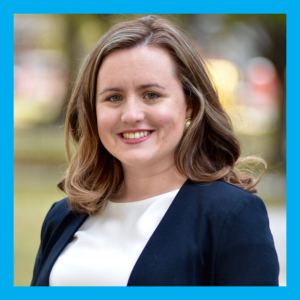
Sara Collins
Public Knowledge
Sara is a Policy Counsel at Public Knowledge focusing on privacy, data, and platform accountability.
(Position Statement: Trust Deficit Why a Lack of Trust in Government and Technology has Harmed our Pandemic Response*)
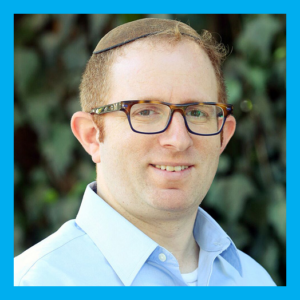
Dov Greenbaum
IDC Herzliya/Yale
Professor Dov Greenbaum directs the Zvi Meitar Institute for Legal Implications of Emerging Technologies at the Interdisciplinary Center Herzliya. Dov has degrees and postdocs from Yeshiva University, Yale University, the University of California, Berkeley, Stanford University and ETH Zurich. Dov’s doctoral research in genetics/bioinformatics focused on Big Data, and his Juris Doctorate (JD) focused on emerging technologies and intellectual property. Dov is a licensed attorney in the State of California and before the United States Patent and Trademark Office, and is a Certified Information Privacy Professional. Dov teaches law in the areas of emerging technologies, genetics, space, constitutional law and intellectual property. (Position Statement: Making Real-World Data Useful within the New Drug Application Process*)

Abhishek Gupta
Montreal AI Ethics Institute and Microsoft
Abhishek Gupta is the Founder and Principal Researcher at the Montreal AI Ethics Institute where he leads an interdisciplinary team of researchers that is focused on the key research areas of privacy, labor impacts of AI, disinformation, and machine learning security. He also frequently works with multilateral organizations and national governments to advise them on their national AI strategies and ethical considerations with the use of AI. He also works as a Machine Learning Engineer at Microsoft where he serves on the CSE Responsible AI Board to help assess the projects for ethical considerations from both a technical and policy perspective. (Position Statement: The Gray Rhino of Pandemic Preparedness-pages – Main Article*)

Sinead Impey
ADAPT Centre, Trinity College Dublin
PhD student at the ADAPT Centre, Trinity College Dublin. My research focus is understanding to what extent can ICT support nurses working in a community of practice to capture their knowledge mindful of ‘Everything’ that could be a barrier. Co-supervised by Gaye Stephens and Prof. Declan O’Sullivan. I have a background in nursing and health informatics and a BA (Hons) Healthcare Management, BSc (Nursing), MSc Health Informatics. (Position Statement: Responsible uses of technology and health data during times of crisis *)

Lyz Veronica Llamas Vallejo
FIRST PRIVACY GmbH
Ms. Llamas is a qualified Colombian lawyer from the Universidad Externado de Colombia, with a Master’s Degree in Law and Business from Bucerius Law School. With experience in consulting EU based corporate groups accross different industries in different such as pharmaceuticals, IoMT, Biostorage, startups and clean energy, in compliance with the General Data Protection Regulation (GDPR) and their corresponding national laws. With special focus on the data protection implications of devices within the realm of the Internet of Medical Things (IoMT) advocating for the integration of standardized requirements from data privacy by design and by default. (Position Statement: IoMT and Data Protection Challenges during the COVID-19 Pandemic*)

Niamh McGuinness
Privacy Analytics
I am a Senior Analyst on the Clinical Trial Transparency Team at Privacy Analytics. I act as a technical lead, overseeing statistical anonymization of clinical trial documents and data for the purposes of regulatory compliance and enabling secondary research. (Position Statement: Challenges in Access to Patient-Level COVID-19 Data and the Role of De-Identification*)

Kathryne Metcalf
University of California San Diego
Kathryne Metcalf is a graduate fellow in Communication and Science Studies at the University of California San Diego. Her dissertation project focuses on medical data mobilities within human genetic research, examining how biobanks and data clearinghouses come to shape research trajectories and shift the epistemic landscape of contemporary genomics. This year, Kathryne has been involved in a study of campus reopenings during COVID-19, exploring how members of university communities negotiate privacy concerns while sharing their own health data within workplace and educational contexts. (Position Statement: Technological Inequality, Contextual Privacy, and COVID-19*)

Ryan Naughton
COVID Alliance
Ryan is the Co-Executive Director at the Center for New Data (newdata.org), a 501(c)(3) that strives to accelerate social impact public public research through the deployment of novel data and privacy focused big data technology. One of the center’s flagship program areas is the COVID Alliance (covidalliance.org). Prior, he was the Director of Data Engineering at fair.com. He graduated from the University of Chicago with a degree in economics. (Position Statement: Empowering Researchers in Times of Crisis*)
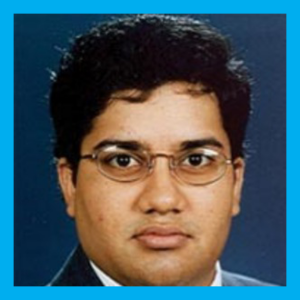
Srinivasan Parthasarathy
Ohio State University
Srinivasan Parthasarathy is a Professor of Computer Science and Engineering, the director of the Data Mining research laboratory and co-program director of the Responsible Data Science community of practice at Ohio State. His research interests span data analytics, machine learning and high-performance computing. He is among a handful of researchers nationwide to have won both the Department of Energy and National Science Foundation Career awards. Together with his students he has received over 10 best paper awards or similar honors. He chaired the SIAM data mining conference steering committee (elected) from 2012 till 2019, and serves or has served on the board of several journals in parallel computing, machine learning and data mining. Since 2012 he also helped lead the creation of OSU’s first-of-a-kind nationwide (US) undergraduate major in data analytics and serves as one of its founding directors. (Position Statement: Data Science Technology and Governance Challenges During Crisis Response*)

Rina Shainski
Duality Technologies
Rina Shainski is Co-Founder and Chairwoman of Duality Technologies. Prior to co-founding Duality, Rina was a general partner of Carmel Ventures (now Viola VC) since 2000, leading investments and serving on the boards of high-tech companies in a variety of IT areas, including mobility, cyber and digital media. Prior to Carmel, Rina held executive positions in Business Development and R&D in Tecnomatix (acquired by Siemens) and served in leadership R&D roles in several high growth technology companies in the Bay Area. Rina holds an M.Sc. in Computer Science from Weizmann institute and a B.Sc. in Physics from Tel Aviv University. (Position Statement: Position Statement*)

Kaliya Young
Covid Credentials Initiative
Kaliya has worked digital identity for over 15 years and is known in the field as the Identity Woman. In 2005 she co-founded the Internet Identity Workshop. She holds a Master of Science in Identity Management and Security from UT Austin. (Position Statement: The COVID-19 Credentials Initiative: Bringing emerging privacy-preserving technology to a public health crisis*)
Session 2 Firestarters:

Edoardo Celeste
Dublin City University
Edoardo Celeste is Assistant Professor in Law, Technology and Innovation at the School of Law and Government of Dublin City University. His research interests lie in the field of digital rights and constitutionalism, privacy and data protection law, online platforms governance and regulation. Edoardo is co-investigator in the project PRIVATT – Assessing Irish Attitudes to Privacy in Times of COVID19, funded by Science Foundation Ireland, and one of the founders of the Digital Constitutionalism Network. (Position Statement: PRIVATT Position statement*)

Chas Kissick
Duke University Sanford School of Public Policy
Chas is a dual master’s student in public policy at Duke Sanford School of Public Policy and business administration at UNC Chapel Hill Kenan-Flagler Business School. His current research topics in technology policy include privacy in contact tracing, securing international supply chains, free speech and national security consequences of social media, and the propagation of malware by legitimate actors. (Position Statement: Evaluating Contact Tracing Apps: We Need More Transparency*)

Jeannie Paterson
Melbourne Law School
Jeannie is the co-director of the Centre for AI and Digital Ethics, a new collaborative, interdisciplinary research, teaching and policy centre at the University of Melbourne involving the faculties of Computing and Information Systems, Law, Arts and Science and Co-leader of the Digital Ethics research stream at the Melbourne Social Equity Institute, an interdisciplinary research institute focused on social equity and community led research. (Position Statement: Opt-in didn’t work for digital contact tracing in Australia, but does that justify an ‘opt-out’ approach? Not yet – at least in Australia*) (Slides: Contact tracing apps in Australia: Be careful what you wish for)
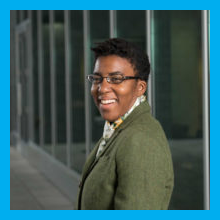
Anne L. Washington
New York University
Dr. Anne L. Washington is a scholar of public-interest technology with expertise in government data. The National Science Foundation has recognized her work on digital government in multiple grants including a five-year NSF CAREER award which funded her Digital Interests Lab. In 2020, she chaired the Artificial Intelligence, Ethics, and Society Conference. She writes and teaches about data ethics at NYU. (Position Statement: Interlocking Decision Systems and Disparity*) (Slides: Interlocking Decision Systems and Disparity)
Session 2 Participants:

Sam Andrey
Cybersecure Policy Exchange, Ryerson University
Sam Andrey is the Director of Policy & Research of the Cybersecure Policy Exchange at Ryerson University in Toronto, Canada. He leads applied research and public policy development in cybersecurity and digital privacy, while also teaching about public leadership and advocacy. For more information about the Cybersecure Policy Exchange team, visit: https://www.cybersecurepolicy.ca/team. (Position Statement: The Race to Trace: Ensuring the Security and Privacy of COVID-19 Exposure Notifications Apps*)
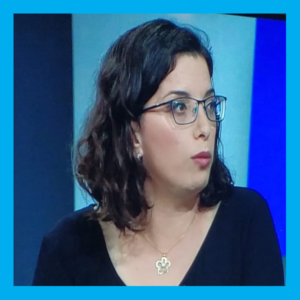
Rachel Aridor Hershkovitz
The Israel Democracy Institute
Attorney Rachel Aridor-Hershkovitz is a researcher in the Democracy in the Information Age Program of the Center for Democratic Values and Institutions at the Israel Democracy Institute. The holder of LL.B and LL.M degrees, her Ph.D dissertation at the University of Haifa deals with frameworks for cooperation between government and industry to increase protection of cyberspace. For more information please visit: https://en.idi.org.il/experts/2168. (Position Statement: Evaluating the Efficiency of Contact Tracing Technologies*)
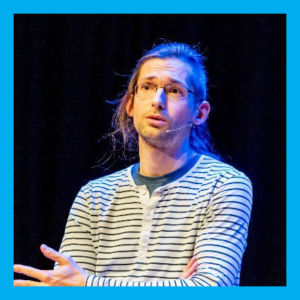
Garfield Benjamin
Solent University
Garfield Benjamin is a researcher focused on the societal implications of technology, including issues of privacy, surveillance, platforms, online content and AI. Their work tackles the narratives that surround technology, the cultures they create, and their impact on society and policy. (Position Statement: The limits of technology, Never just tech*)

Efrén Díaz Díaz
Bufete Mas y Calvet
Lawyer, Geospatial Law PhD. Responsible for the Areas of Technology and Space Law. Bufete Mas y Calvet.
(Position Statement: Geolocation apps do not cure COVID-19: they analyse people’s mobility (case of Spain)*)

Phoebe Dijour
Duke University
Undergraduate at Duke University. Pratt School of Engineering.
(Position Statement: Trade-Off Between Privacy and Efficacy*)

Jiyeon Kim
Cordell Institute for Policy in Medicine & Law, Washington University in St. Louis
Jiyeon Kim is a Research Fellow at The Cordell Institute for Policy in Medicine & Law at Washington University in St. Louis and has served as a Fellow at KISTEP (Korea Institute of Science and Technology Evaluation and Planning), a South Korean government agency and policy think tank. She holds B.S. and M.S. degrees in Molecular Biophysics and Biochemistry from Yale University, M.A. in Medical Ethics and Law from King’s College London, UK, and J.D. from Washington University School of Law. She is interested in legal and policy issues in the health and technology sector, and her research focuses on designing effective policies and ethical frameworks to introduce innovative technologies into the healthcare system and society in a safe and privacy-preserving manner. (Position Statement: Duty to Participate in COVID-19 Proximity Tracing: Rethinking Privacy-Health Tradeoffs in a Pandemic*)

Kartik Nayak
Duke University
Kartik Nayak is an assistant professor in the Department of Computer Science at Duke University. He works in the areas of security, applied cryptography, distributed computing and blockchains. Before joining Duke University, he spent a year as a postdoctoral researcher at VMware Research. Before that, he graduated from the University of Maryland, College Park. He has served on program committees of several top-tier conferences such as ACM CCS, Principles of Distributed Computing (PODC), Asiacrypt, and PETS. Kartik is a recipient of the 2016 Google Ph.D. fellowship in Security. (Position Statement: Poirot: Private Contact Summary Aggregation*)

Quentin Palfrey
International Digital Accountability Watchdog (IDAC)
Quentin is an experienced lawyer who has held a number of government and nonprofit leadership roles in technology and health care. During the Obama administration, Quentin served as senior advisor for jobs & competitiveness in the White House Office of Science & Technology Policy and deputy general counsel for strategic initiatives at the U.S. Department of Commerce. He previously served as the first chief of the Healthcare Division in the Massachusetts Attorney General’s Office. (Position Statement: COVID-19 Mobile App Accountability Investigation Recommendations *)
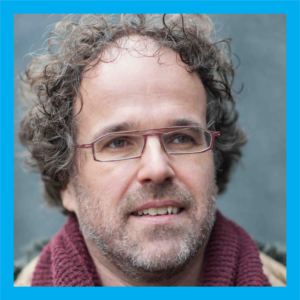
Jo Pierson
Vrije Universiteit Brussel imec-SMIT
Jo Pierson, Ph.D., is Full Professor in the Department of Media and Communication Studies at the Vrije Universiteit Brussel (VUB) in Belgium (Faculty of Social Sciences & Solvay Business School) and Principal Investigator at the research centre SMIT (Studies on Media, Innovation and Technology). In this position, he is in charge of the research unit ‘Data, Privacy & Empowerment’, in close cooperation with imec (Belgian/Flemish R&D and innovation hub in nanoelectronics and digital technology). He holds the VUB Chair in ‘Data Protection on the Ground’, while also being affiliated with Hasselt University (B) and University of Amsterdam (NL). His main research expertise is in online platforms, algorithms, data privacy and user innovation. (Position Statement: Contact tracing apps and solutionism*)

Joy Pritts
JLPritts, PLLC & Innovators Network Foundation Privacy Fellow
Joy Pritts is principal at JLPritts, PLLC and an Innovators Network Foundation Privacy Fellow. She is the former chief privacy officer at the Office of the National Coordinator for Health Information Technology, US Dept. of Health and Human Services. (Position Statement: If You Build it They Will Come*)

Brian Ray
Cleveland-Marshall College of Law
Brian Ray co-founded and directs the Center for Cybersecurity & Privacy Protection at Cleveland State University. His research focuses on cybersecurity and privacy regulation, surveillance technologies, and public data governance, collection and use policies. He is the principal investigator on several grants funding research on privacy policies and practices for the use of surveillance technology by state and local governments. (Position Statement: Bambauer-Ray Responsible Uses of Technology position statement*)

Virag Reti
Xtendr
Virag Reti is the CEO of Xtendr, a company focusing on the research and application of privacy preserving data collaboration technologies. Before joining Xtendr, she has been building her own IT companies. She holds a B.Sc degree in Molecular Bionics Engineering. She is enthusiastic about enabling innovative data sharing in areas where socio-economical aspects could benefit from it, but with an emphasis on preserving individual, institutional and corporate data privacy. (Position Statement: Privacy-preserving SARS-CoV-2 Contact Research*)

Laurin B. Weissinger
Tufts University & Yale Law School
Dr Laurin Weissinger is a researcher and lecturer at the Fletcher School and the Department of Computer Science at Tufts University. He is also affiliated with Yale Law School as the Cybersecurity Fellow, and as a Visiting Fellow at the Information Society Project. Laurin’s research focuses on the socio-technical dimension of IT and cyber security, internet infrastructure security, anti-abuse activity, and socio-technical system architecture. He also has a keen interest in privacy matters as well as data science, particularly network analysis. (Position Statement: Tech is not the Limit | Trust is: Why apps could not solve this crisis and will not solve the next*)
